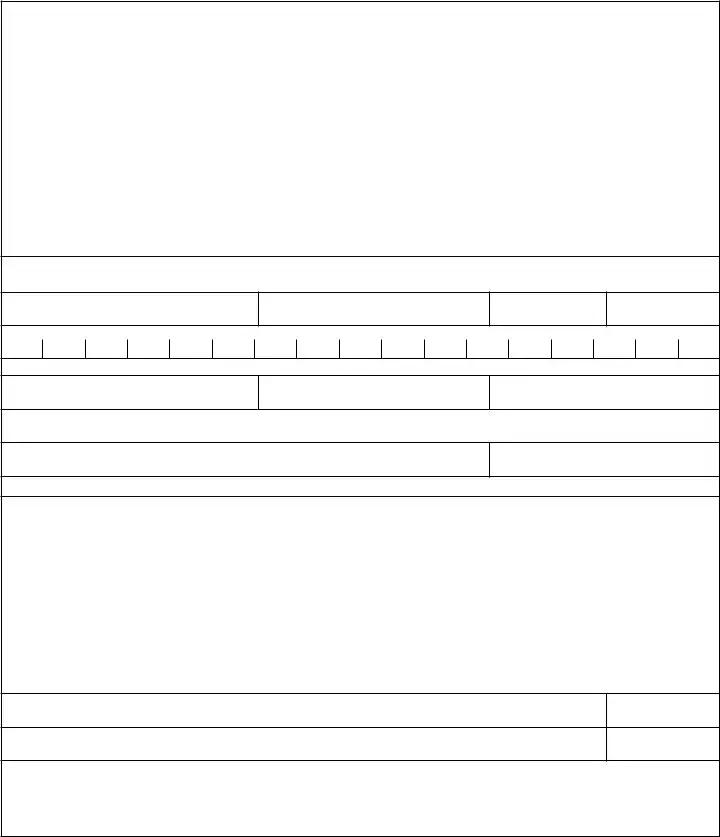What is the Colorado DR 2697 form used for?
The Colorado DR 2697 form, officially titled "Certification of Equipment Compliance for Homemade and In Lieu of Bond Trailers," is a document used by the Colorado Department of Revenue, Division of Motor Vehicles. It serves to certify that a homemade trailer or a trailer in lieu of bond meets all specified equipment and safety regulations outlined by Colorado law. This form, along with other required documents, helps in the process of legally recognizing a trailer for use on public roads.
What documents are needed to submit along with the DR 2697 form?
When submitting the DR 2697 form, several other documents must be included to complete the process:
- A completed DR 2704 Colorado Certified VIN Inspection form.
- A completed Colorado Roadworthy Trailer Checklist by a Certified VIN Inspector.
- Proof of Ownership, which could be one of the following: a registration from a state that does not title trailers, a completed DR 2374 Statement of Trailer Ownership, a completed DR 2409 Statement of Assembly of a Homemade Trailer, or for kit trailers, an MSO (Manufacturer's Statement of Origin) properly assigned to the applicant, an invoice, or a notarized bill of sale.
In cases where ownership documents aren't available, the In Lieu of Bonding for Trailers procedure must be initiated following the checklist DR 2908.
Who needs to complete the Colorado DR 2697 form?
The DR 2697 form must be completed by individuals seeking to certify a homemade trailer or a trailer in lieu of bond for legal road use in Colorado. This includes owners of trailers brought into Colorado from states that do not title or register trailers, as well as builders of homemade trailers.
Is a VIN inspection required for all trailers?
Yes, a VIN (Vehicle Identification Number) inspection, documented on form DR 2704, is required for all trailers that are being certified with the DR 2697 form. The inspection must be completed by a certified VIN inspector who verifies the trailer's roadworthiness, VIN, and compliance with all required equipment and safety standards.
What does the certification process involve?
The certification process involves completing the DR 2697 form, undergoing a certified VIN inspection, and providing all necessary ownership and compliance documentation. The inspector will verify that the trailer meets Colorado's safety and equipment requirements, such as having proper tail and stop lamps, reflectors, safety chains, and a valid number of plates. A weight slip might also be required to verify that the trailer weighs 2000 pounds or less, as determined by the inspector.
What happens if I don't have the necessary ownership documents?
If you are unable to provide the necessary ownership documents for your trailer, you must follow the "In Lieu of Bonding for Trailers 2000 pounds or less" procedure, as outlined in checklist DR 2908. This process may involve posting a bond as a form of guarantee for the trailer's ownership and compliance with Colorado laws.
How do I submit the DR 2697 form and accompanying documents?
Once you have completed the DR 2697 form and gathered all requisite documents, such as the DR 2704 form, ownership proof, and the roadworthy checklist, you should submit them to the Colorado Department of Revenue, Division of Motor Vehicles. It's advisable to check with your local DMV for specific submission guidelines, as these may vary.
What is the penalty for providing false information on the DR 2697 form?
It is crucial to provide true and accurate information on the DR 2697 form, as certifying false statements under penalty of perjury in the second degree is a serious offense in Colorado. Individuals found providing inaccurate or dishonest information may face legal penalties, including fines and potential criminal charges.

 Registration from state that does not title trailers (When transferring ownership, a current registration is required.)
Registration from state that does not title trailers (When transferring ownership, a current registration is required.) Completed DR 2374 Statement of Trailer Ownership (for trailers brought into Colorado from a state that does not title or register trailers);
Completed DR 2374 Statement of Trailer Ownership (for trailers brought into Colorado from a state that does not title or register trailers); Completed DR 2409 Statement of Assembly of a Homemade Trailer;
Completed DR 2409 Statement of Assembly of a Homemade Trailer; MSO properly assigned to the applicant and/or
MSO properly assigned to the applicant and/or Invoice indicating KIT trailer was purchased by the applicant or
Invoice indicating KIT trailer was purchased by the applicant or Bill of sale for kit trailer (Notarized or Signed Under Penalty of Perjury.
Bill of sale for kit trailer (Notarized or Signed Under Penalty of Perjury. A cash register receipt will only be accepted, if it indicates that the kit trailer was purchased by the applicant
A cash register receipt will only be accepted, if it indicates that the kit trailer was purchased by the applicant
 C.R.S.
C.R.S. 
 C.R.S.
C.R.S. 
 C.R.S.
C.R.S. 
 C.R.S.
C.R.S.  YES
YES 